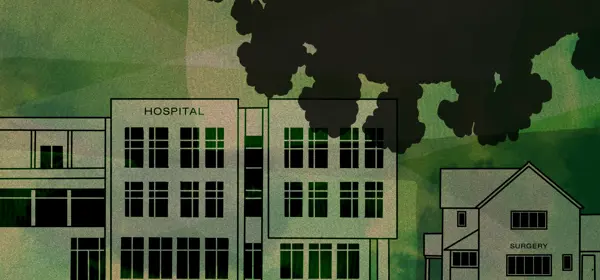UK Government ‘failed citizens’ with lack of preparation for COVID-19 pandemic
UK Government ‘failed citizens’ with lack of preparation for COVID-19 pandemic
First report in public inquiry finds preparedness ‘inadequate’ and urges ‘fundamental reform’
The BMA wants to see immediate changes in response to the first report of the UK COVID-19 public inquiry, which found the UK Government ‘failed their citizens’ through its insufficient preparations for a pandemic.
Inquiry chair Baroness Hallett said the UK ‘prepared for the wrong pandemic’, with its focus on influenza as she summarised the findings and recommendations from module one of the public inquiry, which looked at the UK’s resilience and preparedness for pandemics.
‘Preparedness was inadequate for a global pandemic of the kind that struck,’ the report says, noting that ‘the institutions and structures responsible for emergency planning were labyrinthine in their complexity’.
Baroness Hallett noted in her comments that ‘there will be a next time’, saying it ‘is not a question of if another pandemic will strike, but when’ as she emphasised the importance of improving resilience and preparedness.
‘Unless we are better prepared,’ she said. ‘It will bring with it immense suffering, a huge financial cost and the most vulnerable in society will suffer the most.’
She said the UK Government’s belief it was prepared for a pandemic was ‘dangerously mistaken’.
‘In reality, the UK was ill-prepared for dealing with a whole-system civil emergency of a pandemic, let alone the coronavirus pandemic that actually struck,’ she said.
Health inequality
Going into the pandemic, she noted, there had been a ‘slowdown in health improvements’ and ‘health inequalities had widened’ with public services including health and social care running ‘close to, if not beyond, capacity in normal times’.
Baroness Hallett named former Conservative health secretaries Jeremy Hunt and Matt Hancock as she criticised the lack of preparation in what was widely seen as a rebuke of austerity politics.
She noted ‘fatal strategic flaws underpinning the assessment of the risk faced by the UK, how those risks and their consequences could be managed and prevented from worsening and how the state should respond’.
Giving an example of how the UK failed in its containment efforts, she said test-and-trace systems ‘did not exist’ in the UK when the COVID-19 pandemic struck.
‘The UK Government’s sole pandemic strategy, from 2011, was outdated and lacked adaptability. It was never, in fact, properly tested,’ Baroness Hallett said.
‘The processes, planning and policy of the civil contingency structures across the UK failed the citizens of all four nations.
‘There were serious errors on the part of the state and serious flaws in our civil emergency systems. This cannot be allowed to happen again.’
Strategic preparedness
She called for ‘fundamental reform’ of pandemic preparedness as she made 10 recommendations.
These include a ministerial committee responsible for preparedness and resilience and a new UK-wide whole-system approach to civil emergency strategy, reassessed every three years as well as a UK-wide pandemic response exercise every three years and a UK-wide independent statutory body to oversee this and advise government.
Baroness Hallet also recommended a new approach to risk assessment, assessing a wider range of scenarios, introducing new mechanisms for timely collection, analysis and sharing of reliable data and bringing external expertise into government to ‘challenge orthodoxy’ and ‘guard against the acute problem of groupthink’.
In her speech Baroness Hallett acknowledged core participants, such as the BMA, asked her to make further recommendations but said the initial 10 ‘most significant’ recommendations in module one can be ‘implemented swiftly and at reasonable cost’, which ‘could make a real difference’ to the UK’s resilience and preparedness, if implemented together.
She emphasised how many of the other issues of concern will be ‘examined more fully’ in following modules, which will each include reports with their own recommendations.
‘Unless the lessons are learned, and fundamental change is implemented, the human and financial cost and sacrifice of the COVID-19 pandemic will have been in vain,’ she said.
BMA council chair Phil Banfield, who attended the hearing, said: ‘This report reveals in all its true horror how appallingly under-prepared the governments were for the pandemic, that processes failed us as citizens, and that lives could have been saved.
‘We knew that when the pandemic began our healthcare services were already struggling to cope and ‘running hot’ because of years of neglect and under investment by the Conservative government.
‘This report lays bare how, time and time again, ministers were told that we simply did not have enough staff or resources to cope with the predictably huge surge in demand for healthcare that a pandemic would bring. It shows just how many times governments ignored key findings.’
Professor Banfield noted how 13 of 14 simulation exercises, spanning 15 years to 2018, identified a lack in staffing, appropriate personal protective equipment and the ability to cope with a surge in demand among key concerns.
He said the ‘failure to learn from past civil emergency exercises and outbreaks of disease’, noted in the report, ‘led to an excess loss of life and to thousands of doctors and other healthcare staff being put at unimaginable risk on a daily basis for two years’.
Unprepared for crisis
Professor Banfield noted how there were more reports and recommendations to follow but said ‘we hope that change comes soon’.
He added: ‘The BMA finds that the UK is still poorly equipped, under-staffed and under-prepared to manage a future pandemic when it comes. Today’s report makes clear the urgency of improving the UK’s preparedness.
‘That is a monumental and wide-ranging task for the new Government, that Baroness Hallet specifically states will need significant funding. A small but significant step in the right direction would be to see proper investment in health and social care staffing and rebuilding our public health services.
‘We still have a population which is nowhere near as healthy as it should be, with huge health inequalities, too few public heath doctors and fragmented public health services.’
The BMA welcomed the acknowledgement in the report that scientific experts should have been used more by the Government and the recommendation of the creation of an independent statutory body for civil emergency preparedness.
But Prof Banfield stressed: ‘Change needs to start now.’




